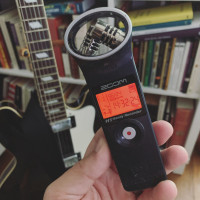
Writing Insights: Why don't agents tell you why they rejected your book?
authorlink.com – Monday August 1, 2022

Many writers ask why agents don’t give more specific reasons for rejecting a book submission. A standard answer is: “not the right fit,” though a submission is in the same genre they represent.
There can be a number of reasons why a literary agent rejects a work. When an agent says a work is not the right fit for them, it may or may not relate to the writing itself.
The agent could have more submissions than they can handle at the time, or they have just sold a similar title, or they know an editor is looking for a particular story angle, and your submission doesn’t fill that story angle. It could be that the agent doesn’t see the work slotting into a particular category they represent. There are different kinds of thrillers, for example. Maybe the agent knows they can sell psychological suspense but doesn’t know where to go to sell a medical thriller. Maybe the agent doesn’t feel the story targets a large-enough audience or the market is glutted with similar titles. It can also mean the agent simply doesn’t have time to thoroughly read your story, but a quick read tells them it doesn’t fit a need. Or, maybe they are tired and just had a bad day. Agents are human, you know. So, don’t take it personally.

5 Creative Cures for Writer's Block
psychcentral.com – Saturday July 30, 2022

It’s stressful when the words don’t come, when you’re sitting at your desk staring at the blinking cursor or the barren page. Minutes feel like hours. Hours feel like days.
Deadlines loom, and you’re still stuck and staring. A kind of dread begins building in your stomach and travels to your throat, and then peaks between your temples. It’s reminiscent of firecrackers exploding.
“Writer’s block, or any creative block, is really about fear,” according to Miranda Hersey, a writer, editor and creativity coach. The fear of not knowing where to start or we’re headed. The fear that we’re not good enough.
Blocks are tough. They can feel big and intimidating and impossible. But where there’s a block, there’s also a way out. Here are five ways to break through writer’s block.

Meet the People Behind Some of Today's Best Small Publishers Specializing in Crime Fiction
crimereads.com – Tuesday July 26, 2022

Bless the small press! We talk a lot about how to make the big publishers accountable and more diverse, but let’s not forget there is another level of publishing where people have the freedom to follow their taste rather than having to justify each book’s profitability. I think most people in the publishing business feel like they could put together a damned good imprint given world enough and time. I do. So I gathered the founders and publishers of some of crime and crime fiction’s best small presses: Paul Oliver of Syndicate Books, an imprint devoted to bringing forgotten authors back into print; Charles Ardai of noir publisher Hard Case Crime; Sara Gran, whose brand-new imprint is Dreamland Books; Gregory Shepard of reissue enthusiast Stark House; Jason Pinter of Polis Books; and the late but welcome addition of Michael Nava of Amble Press. We talked quality, representation, resurrecting old books and conjuring new ones.

Jason Mott on the Power of Routine, and Tackling Writer’s Block by Writing Badly
lithub.com – Wednesday June 29, 2022

Literary Hub: What time of day do you write?
Jason Mott: I write first thing in the morning. I get up at 5:30 am and head straight to the computer because I’ve found that the best time to write is when the rest of the world is sleeping. There are just fewer distractions and interruptions first thing in the morning.
LH: How do you tackle writer’s block?
JM: I write. I have a theory that writers block isn’t real. In my opinion, writers block is simply the fear of writing bad. So, on those tough days, I just go ahead and write badly. Eventually, my brain always figures out what it wants to say.

How I write: Screenwriter Kathryn Burnett on why a writing career is a marathon not a sprint
stuff.co.nz – Tuesday June 28, 2022

Kathryn Burnett has won the Best Drama Script at the NZTV Awards, for her co-writing of the tele-feature The Tender Trap (TVNZ On Demand). Kathryn is an award-winning professional screenwriter, playwright, public speaker and writing mentor/coach. Her latest play, The Campervan, is being produced by Tadpole Productions in September and will have an all-star New Zealand cast and is set to be directed by industry stalwart Simon Prast.

Clare Pooley on Writerly Perseverance and Knowing When To Give Up
lithub.com – Monday June 27, 2022

“You must never give up on writing itself. But sometimes you need to give up on what you’re writing.”
We’re often told that the key to becoming a published author is perseverance. “A professional writer,” according to Richard Bach, “is an amateur who didn’t quit.”
It takes a certain type of dogged determination—some might call it self-delusion—to get up before dawn for days, months, years on end and drag approximately 90,000 words out of your imagination onto a blank computer screen.
When I sat down to write my second novel, I thought that this time it would be easier. I knew I could do it—my debut, The Authenticity Project, had been a New York Times bestseller—and I already had fabulous publishers, in New York and London, waiting eagerly for the manuscript. No more wild flinging of submissions, with increasing desperation, into the farthest regions of the world wide web for me. Oh no.
The creative muse, it transpires, saves her most hysterical laughter for those of us who think it’s going to be easy.

A solution to writer’s block: Transcribe yourself
austinkleon.com – Friday June 24, 2022

Stewart Brand once said to Brian Eno: “Why don’t you assume you’ve written your book already — and all you have to do now is find it?”
In a similar vein, I enjoyed this story of how KC Davis, author of the brilliantly-titled How To Keep House While Drowning, wrote their book:
I had long stared at blank word documents, unable to get my thoughts on the page. I’m actually not a great writer — but I am a pretty good speaker. So I went back through my social channels and transcribed every short form video I had ever done on this topic and that left me with all these disjointed paragraphs. I spent another two months trying to decide how to connect these little vignettes into a “real” book and finally realized that my choices were to publish an imperfect book or not publish the perfect book. So I decided to make each section its own chapter — some only a page long.

On Writing Unlikeable Characters
crimereads.com – Thursday June 23, 2022

When I set out to write my young adult novel Never Coming Home, my number one goal was to create a killer mystery. My number two was to write a cast of characters that the reader just couldn’t wait to see die. Never Coming Home is a contemporary, social media-based retelling of Agatha Christie’s And Then There Were None, the story of 10 strangers who are all invited to a mysterious island under sketchy circumstances. Once they arrive, it isn’t too long before they’re hit with the big M: murder.
While Queen Christie’s masterful storytelling and deft deployment of the red herring definitely drew me to the idea of reimagining this story, what really hooked me was that many of the characters in it were deliciously awful. Take beautiful, dumb Anthony Marston, whose selfishness is so pure that it’s almost to be admired. Almost. Or Emily Brent, a pious, self-righteous spinster who regularly indulges in the deadliest sin (pride, that is). Philip Lombard is the closest the book has to a hero, and he’s as morally gray as they come (though any quick scroll through #booktok will inform you that a morally gray hero is actually what the boys and girls want these days).

They Say It Only Takes One: My Year of Trying to Get an Agent, and Get Pregnant
lithub.com – Wednesday June 22, 2022

For as long as I’ve been a writer, the comparison that I’ve heard the most frequently used by artists of my ilk is that writing a book is like having a baby. As someone who has never had a baby, I imagine the truth of this likeness is that both take time and that both, once completed, are sent out into the world with little control over what happens next.
But what the comparison between writing a book and having a baby gets wrong is the assumption that the person writing the book or birthing that baby is in a position to both publish a book and procreate. Maybe this is why I’ve spent the last few months feeling unconvinced by the truth of this likeness. Is writing a book like having a baby? Sure, if you can get an agent and can get pregnant.
I, unfortunately, haven’t been able to do either.

My journey to getting a book deal
dailykos.com – Tuesday June 21, 2022

So much about making a career as a writer is opaque and exclusionary. There’s also a lot that, frankly, simply depends on your specific situation. It’s hard to give advice that will work for everyone, much less most people. All of that said, I shared a bit about my experience finding a literary agent for my novel (you can check that out here if you’d like) and now that I’ve sold my first book, I figured I would return and share a bit more for anyone who might be considering a similar path.
The biggest caveat here is that this is all what my experience was like. So many other writers have had wildly different journeys. No one’s path is better than anyone else’s and it is (truly) never a reflection of your worth or merit as a writer. It can be oddly tempting to think about folks who get major house auctions within a few days of going on submission, but really, don’t torture yourself.
Get the free newsletter | Submit a news item or article | Get Writers' News for your website





